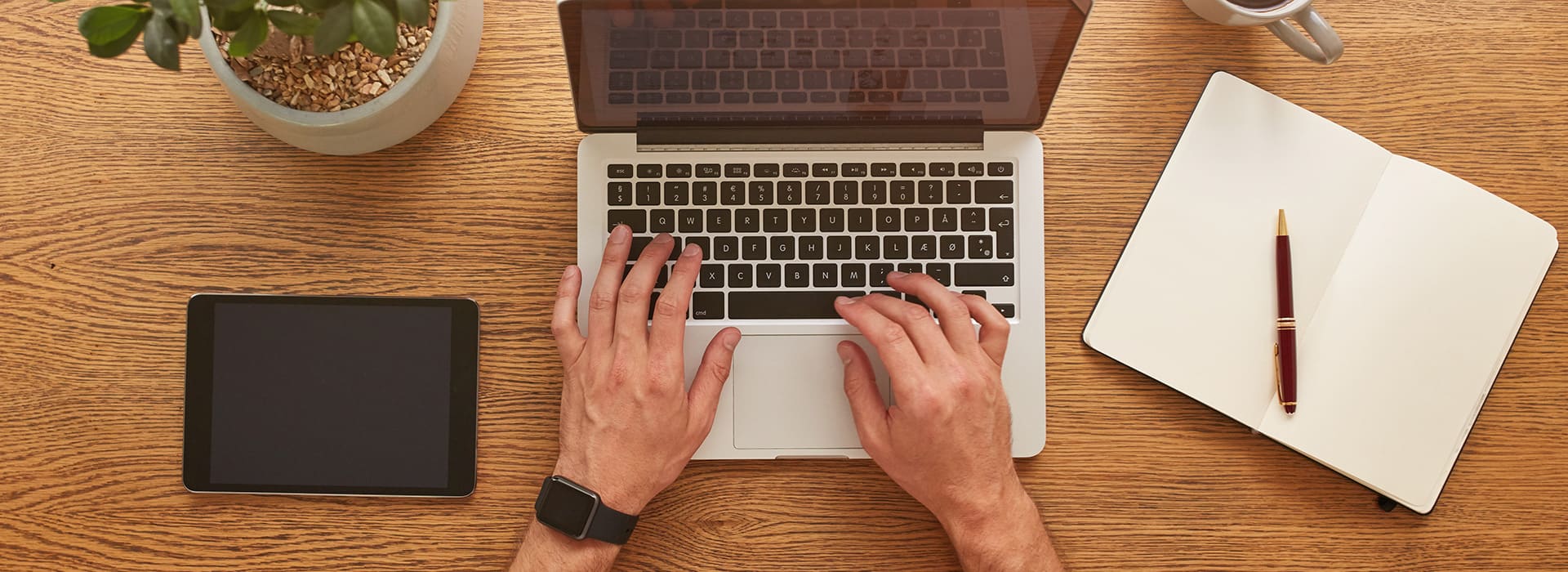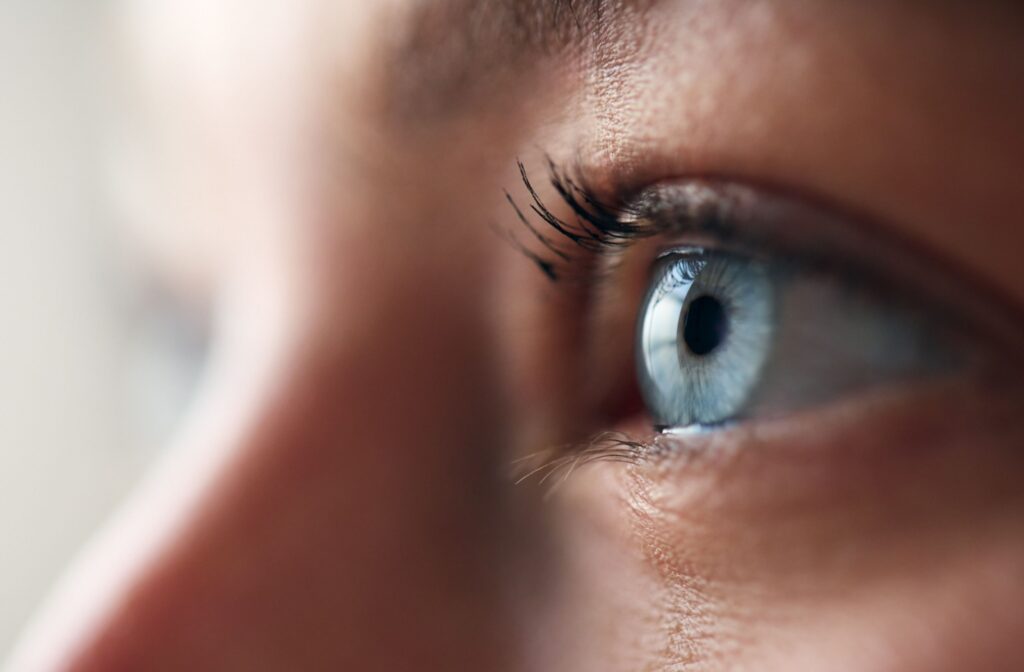Just as high blood pressure can adversely impact various parts of our body, especially the heart, high eye pressure can likewise spell trouble for our eyes, amplifying the risk of numerous complications.
High eye pressure happens when the fluid in your eye doesn’t drain properly, causing a buildup that can put stress on the optic nerve. While it doesn’t always mean you’ll develop glaucoma, leaving it unchecked can increase that risk. Fortunately, there are ways to manage it, from prescription eye drops to simple lifestyle changes.
Regular eye exams actively help identify high eye pressure early, giving your optometrist the chance to recommend treatments that can help protect your vision.
What Is High Eye Pressure?
Also referred to as ocular hypertension, high eye pressure is a condition where the pressure of the fluid inside your eye (intraocular pressure or IOP) spikes above the normal range. While most people have an average pressure between 10—20 mmHg (millimetres of mercury), readings above this are usually considered high.
If the aqueous humour (clear fluid between your cornea and iris) doesn’t drain properly, it can lead to buildup and increased pressure within the eye. The fluid performs a critical role by nourishing the eye’s lens and cornea and removing metabolic waste.
Understanding the Causes of Elevated Eye Pressure
Elevated IOP can result from various genetic and environmental factors. A common cause is eye conditions such as trauma or inflammation, which can interfere with the natural outflow of fluids within the eye.
Prolonged use of certain medications, like corticosteroids, has also been linked to increased eye pressure. Genetics play a significant role; people with a family history of glaucoma or elevated IOP are at a higher risk.
Other contributing factors include age, underlying health conditions like diabetes, physical injuries to the eye, and the natural physical shape or size of the eye.
What makes elevated eye pressure particularly concerning is its subtlety; you may not notice it until it has already caused damage.
The Link Between High Eye Pressure & Glaucoma
High eye pressure might not sound critical at first, but it can significantly increase the risk of developing glaucoma, a leading cause of vision loss. We often refer to glaucoma as the “silent thief of sight” because it progresses slowly, with no noticeable symptoms until it’s too late.
Several types of glaucoma exist, but the risk of the most common, open-angle glaucoma, increases as pressure remains elevated. Elevated pressure can lead to gradual vision loss, starting in the periphery.
Acute angle-closure glaucoma, a rarer type, requires urgent medical attention as it occurs when pressure rapidly increases.
Not everyone with high eye pressure will develop glaucoma. However, actively managing your eye pressure is crucial to avoid significantly increasing your risk.
Effective Ways to Reduce Eye Pressure
The good news is that you can manage and reduce high eye pressure with a combination of lifestyle adjustments, medications, and, in certain cases, surgical interventions.
- Follow Your Doctor’s Treatment Plan
If prescribed, use eye pressure-reducing medications like eye drops consistently and as directed by your healthcare provider. These medications help regulate the fluid in your eyes and prevent pressure buildup.
- Stay Active with Regular Exercise

Moderate physical activities such as walking, swimming, or yoga can improve blood circulation and overall ocular health. However, consult your doctor before beginning any new exercise routines.
- Maintain a Healthy Diet
A diet rich in leafy greens, vegetables, and omega-3 fatty acids can support eye health.
- Practice Stress Management
Stress can negatively impact eye health, so relaxation techniques like meditation or deep breathing can help maintain normal eye pressure levels.
- Avoid Smoking & Limit Alcohol Consumption
Smoking and excessive alcohol use can harm blood vessels, including the delicate vessels in the eyes, increasing the risk of various eye diseases. Quitting smoking and moderating alcohol intake can help preserve your vision in the long term.
- Protect Your Eyes
Wear appropriate protective eyewear to prevent physical injuries, and use proper lighting when reading or working to reduce strain. Glaucoma increases sensitivity to light and glare, so a handy pair of shades can enhance your comfort.
- Monitor Medications
Certain medications, such as decongestants, can cause pupil dilation, which can increase risks in narrow-angle glaucoma patients and suspects. Discuss with your eye care provider which medications you are taking to be certain your eye pressure won’t be affected.
Thorough Eye Exams with Discover Eyecare
At Discover Eyecare, we take pride in providing thorough eye exams that prioritize your eye health. We use detailed diagnostic tools and technology to assess every aspect of your vision and eye health.
These tools include OCT (optical coherence tomography) scans, which provide detailed, cross-sectional images of your retina to help detect conditions like:
- Macular degeneration
- Glaucoma
- Diabetic retinopathy
We also use retinal photography to capture high-resolution images of the back of your eye, enabling us to monitor changes over time.
Tonometry measures eye pressure and screens for glaucoma, while visual field testing evaluates peripheral vision to detect any potential blind spots or neurological issues.
Additionally, corneal topography helps us map the surface of your cornea for conditions like keratoconus or to prepare for specialty contact lenses. By leveraging these technologies, we leave no stone unturned in maintaining your eye health.
This commitment to precision allows us to detect potential issues early and provide a personalized care plan for your needs.
Protect Your Vision with Regular Eye Care
You can help actively manage high eye pressure to maintain long-term eye health. By staying proactive and working closely with your optometrist, you can reduce the risk of complications like glaucoma.
If you’re concerned about your eye pressure or haven’t had a recent eye exam, now is the time to act. At Discover Eyecare, we offer thorough eye exams to support your eye health. Schedule your appointment today and take the first step toward better eye care.



